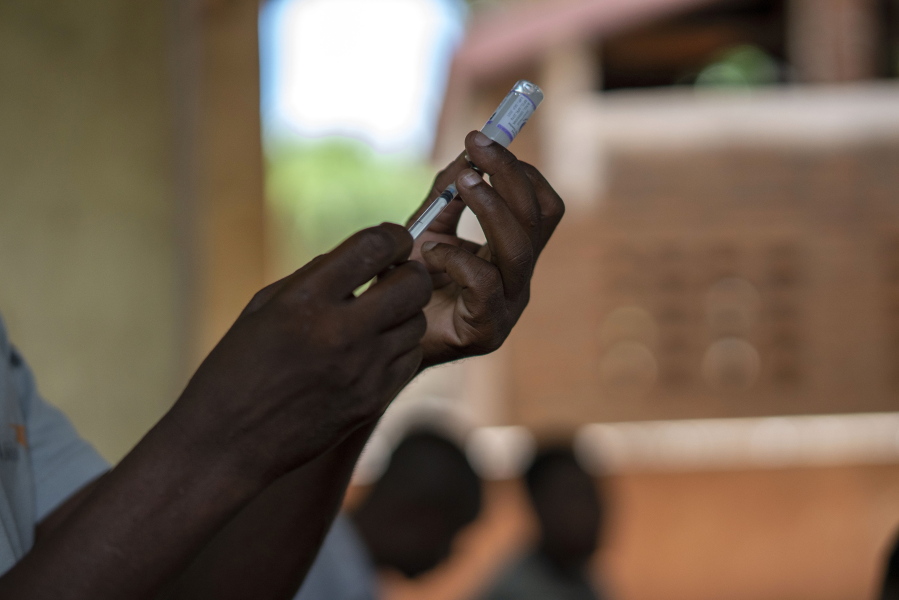LONDON — The World Health Organization on Wednesday endorsed the world’s first malaria vaccine and said it should be given to children across Africa in the hope that it will spur stalled efforts to curb the spread of the parasitic disease.
WHO Director-General Tedros Adhanom Ghebreyesus called it “a historic moment” after a meeting in which two of the U.N. health agency’s expert advisory groups recommended the step.
“Today’s recommendation offers a glimmer of hope for the continent, which shoulders the heaviest burden of the disease. And we expect many more African children to be protected from malaria and grow into healthy adults,” said Dr. Matshidiso Moeti, WHO’s Africa director.
WHO said its decision was based largely on results from ongoing research in Ghana, Kenya and Malawi that tracked more than 800,000 children who have received the vaccine since 2019.
The vaccine, known as Mosquirix, was developed by GlaxoSmithKline in 1987. While it’s the first to be authorized, it does face challenges: The vaccine is only about 30 percent effective, it requires up to four doses, and its protection fades after several months.
Still, scientists say the vaccine could have a major impact against malaria in Africa, home to most of the world’s more than 200 million cases and 400,000 deaths per year,
“This is a huge step forward,” said Julian Rayner, director of the Cambridge Institute for Medical Research, who was not part of the WHO decision. “It’s an imperfect vaccine, but it will still stop hundreds of thousands of children from dying.”
Rayner said the vaccine’s impact on the spread of the mosquito-borne disease was still unclear, but pointed to those developed for the coronavirus as an encouraging example.
“The last two years have given us a very nuanced understanding of how important vaccines are in saving lives and reducing hospitalizations, even if they don’t directly reduce transmission,” he said.
Dr. Alejandro Cravioto, head of the WHO vaccine group that made the recommendation, said designing a shot against malaria was particularly difficult because it is a parasitic disease spread by mosquitoes.
“We’re confronted with extraordinarily complex organisms,” he said. “We are not yet in reach of a highly efficacious vaccine, but what we have now is a vaccine that can be deployed and that is safe.”



